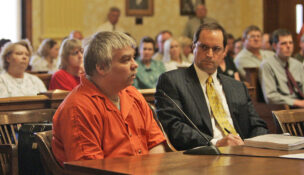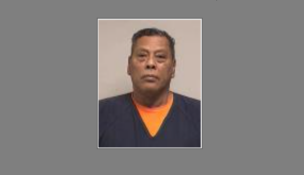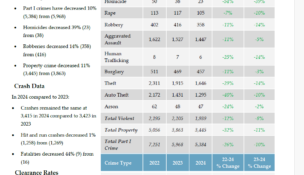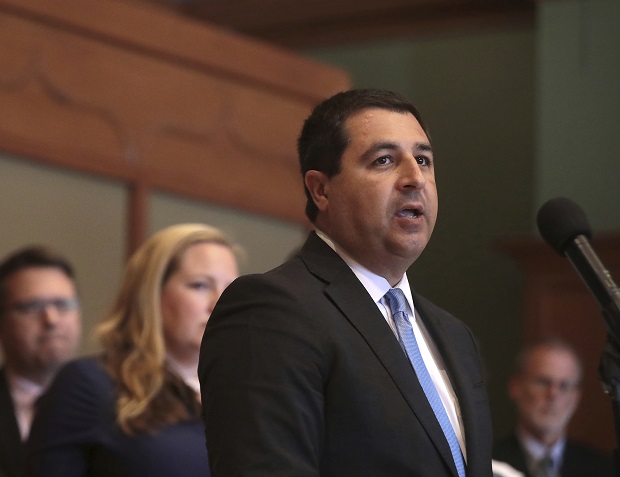Lawmakers push to move young criminals into juvenile system
By: Associated Press//October 19, 2015//
Lawmakers push to move young criminals into juvenile system
By: Associated Press//October 19, 2015//
By TODD RICHMOND
Associated Press
MADISON, Wis. (AP) — A rare bipartisan group of Wisconsin legislators is trying again to move 17-year-old nonviolent criminals into the state’s juvenile justice system, saying they deserve a chance to turn their lives around.
The lawmakers, led by Sen. Jerry Petrowski, have introduced a bill that would place 17-year-olds accused of nonviolent crimes for the first time in the juvenile court. Seventeen-year-olds accused of violent crimes, including homicide, battery or sexual assault, would still be considered adults.
Petrowski, a Marathon Republican, said in a news release that young people who have broken the law for the first time shouldn’t be saddled with a criminal record that will hang over them for the rest of their lives, preventing them from entering the military and making it harder to land jobs.
“The kids we’re talking about are non-violent and are having their first brush with the legal system and they deserve a second chance to become responsible adults,” Petrowski said.
Many states toughened their punishments for young offenders in the late 1980s and early 1990s as juvenile crime increased. In recent years, though, many have begun backing off in the face of declining juvenile crime rates, budget crunches and research showing that the brain doesn’t fully develop until a person is in his or her mid-20s. Since 2007, at least four states have moved 17-year-olds into juvenile court, according to the National Conference of State Legislatures.
Wisconsin is one of nine states that prosecute 17-year-olds in adult courts, where convictions can mean prison time depending on the crime. Anyone 16 or younger is generally subject to juvenile court, although they’re treated as adults if they’re charged with certain crimes such as homicide or they’re repeat offenders.
Wisconsin’s juvenile system is geared more toward rehabilitation than punishment. Proceedings are secret and sentences, known as dispositions, can range from victim-offender mediation to detention in a county or state juvenile facility. Prison isn’t a possibility.
Petrowski has been working with the Second Chance Alliance, a coalition of youth and criminal justice reform advocacy groups, to move cases involving 17-year-olds into juvenile court for several years.
He introduced an identical bill last session with many of the same Republican and Democratic co-sponsors. GOP leaders never gave it a floor vote after counties complained about the costs of absorbing 17-year-olds. In Wisconsin, counties are generally responsible for the detention, counseling and treatment of juvenile offenders.
The state Department of Corrections noted in a fiscal estimate attached to that bill that housing someone at a juvenile detention facility costs about $54,800 annually, compared with $18,800 per year at an adult in jail. The agency noted, however, that the bill would result in a reduction in jail, prison and adult community supervision populations, which would save money.
Jim Moeser, deputy director of Wisconsin Children and Families, one of the members of the Second Chance Alliance, said it is becoming more difficult to argue that the change would be too expensive.
First-time offenders need fewer services than chronic offenders and juvenile arrests have declined in recent years, which means fewer kids in the system and lower costs, Moeser said. Data from the state Department of Justice shows that the juvenile arrest rate dropped 46 percent from 2009 through 2014.
He also pointed to studies that show the juvenile system reduces recidivism, saving money down the road.
“To think you’re going to take a kid who’s 17 and put him in with adult criminals and think he’s going to get better, common sense is going to tell you that won’t work very well,” Moeser said.
The Wisconsin Counties Association is the only group registered as opposing the new bill, according to state Government Accountability Board records.
Kyle Christianson, the association’s government affairs director, said the organization supports moving 17-year-olds back into juvenile court. Even though arrest rates are declining, 17-year-olds’ cases are growing more complex and require more services, he said. That takes money the bill doesn’t provide, he said.
“We don’t want to be the bad guys here,” Christianson said. “But if the goal is to get better outcomes, we need to prioritize the funding for it.”
Petrowski said negotiations with the association are ongoing. He declined to elaborate.
Seventy lawmakers have signed onto the bill as co-sponsors. Still, the measure’s prospects look murky.
A spokeswoman for Assembly Speaker Robin Vos didn’t return a message seeking comment on the proposal’s chances. A spokeswoman for Senate Majority Leader Scott Fitzgerald said Senate Republicans haven’t discussed the bill and referred questions to Sen. Van Wanggard, chairman of the Senate judiciary committee. Wanggaard aide Scott Kelly said the committee might hold a hearing on the bill this winter. Follow @trichmond1
Legal News
- Steven Avery prosecutor Ken Kratz admits ‘mistakes were made’
- Colombian national extradited to Milwaukee faces International narcotics-trafficking conspiracy charge
- MPD: Milwaukee homicides down nearly 40 percent compared to last year
- EVERS: Republican lawmakers No-Show at special meeting to release statewide PFAS funding, stabilize healthcare access
- Wisconsin ICAC Task Force conference on Missing and Exploited Children highlights increase in sextortion cases
- More than 300 Wisconsin officers back in law enforcement after being fired or forced out
- Former Trump staffer who said to ‘fan the flame’ after 2020 loss hired to lead Wisconsin GOP
- Gov. Evers appoints David Casey to Serve as DOR Secretary
- Former Marine sentenced for Molotov Cocktail attack against Planned Parenthood Clinic
- ABA names 34th Annual Margaret Brent Women Lawyers of Achievement Awards honorees
- FBI launches criminal investigation into Key Bridge collapse
- Man charged in slaying after woman’s leg found at Milwaukee-area park
WLJ People
- Power 30 Personal Injury Attorneys – Russell Nicolet
- Power 30 Personal Injury Attorneys – Benjamin Nicolet
- Power 30 Personal Injury Attorneys – Dustin T. Woehl
- Power 30 Personal Injury Attorneys – Katherine Metzger
- Power 30 Personal Injury Attorneys – Joseph Ryan
- Power 30 Personal Injury Attorneys – James M. Ryan
- Power 30 Personal Injury Attorneys – Dana Wachs
- Power 30 Personal Injury Attorneys – Mark L. Thomsen
- Power 30 Personal Injury Attorneys – Matthew Lein
- Power 30 Personal Injury Attorneys – Jeffrey A. Pitman
- Power 30 Personal Injury Attorneys – William Pemberton
- Power 30 Personal Injury Attorneys – Howard S. Sicula











